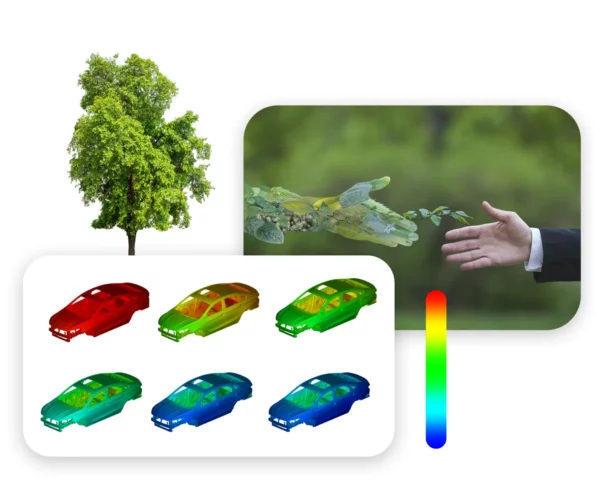Utilizing CFD Simulations in Automotive Paint Shops for Environmental Efficiency

The Issue
Addressing climate change is paramount in today’s industrial landscape. Within the automotive sector, especially in paint shops, the environmental impact of manufacturing processes cannot be ignored. The World Health Organization (WHO) identifies volatile organic compounds (VOCs), which are prevalent in automotive paints, as major air pollutants. In many countries, like China or European Economic Area (EEA), have implemented strict VOC emission standards for automotive paint shops, pushing industries to innovate and reduce emissions.
Predominantly, the reliance on fossil fuels and certain chemicals in paint shops contribute to greenhouse gas emissions and broader environmental concerns. But did you know? A promising solution lies in the adoption of Computational Fluid Dynamics (CFD) simulations.
CFD simulations offer a sophisticated approach, enabling automotive companies to improve their processes while significantly reducing their environmental imprint. By analyzing fluid dynamics during the painting procedure, these simulations facilitate a deeper understanding of the problem areas and inefficiencies, paving the way for improvements.
The impact of CFD
CFD simulations offer a sophisticated approach, enabling automotive companies to improve their processes while significantly reducing their environmental imprint. By analyzing fluid dynamics during the painting procedure, these simulations facilitate a deeper understanding of the problem areas and inefficiencies, paving the way for improvements.
One such key area is the oven process, notorious for its intensive energy consumption. In the US, the Environmental Protection Agency (EPA) has set forth guidelines that focus on reducing energy consumption in these processes. Leveraging CFD can align with such directives, leading to significant reductions in energy and emissions. And alsim Paint Shop Oven makes CFD solutions accessible even for those who aren’t simulation experts.
Coupled with the alsim Data Cleaning Merge, the tool provides a comprehensive solution — from preparing geometries and running simulations to extracting actionable insights, all with just a few clicks, irrespective of the underlying complexity.
CFD simulations promise accuracy and are considerably more time-efficient. ESS is committed to sustainability and efficiency across its suite of offerings, ensuring users find them intuitive and effective.

CFD simulations promise accuracy and are considerably more time-efficient.
Global regulatory bodies, such as the European Union, which has not only set goals to cut down CO2 emissions from vehicles by 55% by 2030 but also has initiated the REACH regulations to oversee chemical usage, including those in automotive paints, underscore the urgency of enhancing sustainability within the automotive sector. CFD simulations align with this directive by delivering a comprehensive perspective on emissions and pinpointing areas for refinement. Moreover, they afford companies the agility to implement late-stage design modifications seamlessly.
Yet, a notable portion of the industry still clings to conventional methods. These traditional approaches, though familiar, often fall short in precision and are time-intensive. Conversely, CFD simulations promise accuracy and are considerably more time-efficient.
The Conclusion
The stakes are high. With the global population surge and the consequent rise in vehicle demand, unchecked emissions from the automotive realm could exacerbate environmental degradation. CFD simulations stand out as a beacon of hope, offering a pathway to decrease emissions and foster a sustainable future.
In light of stringent regulations and the pressing need for environmental conservation, CFD simulations aren’t just an option; they’re a necessity for modern automotive manufacturers. Prioritizing them, especially in resource-heavy processes like those in paint shops, is a decisive step towards a sustainable automotive industry and, by extension, a healthier planet.